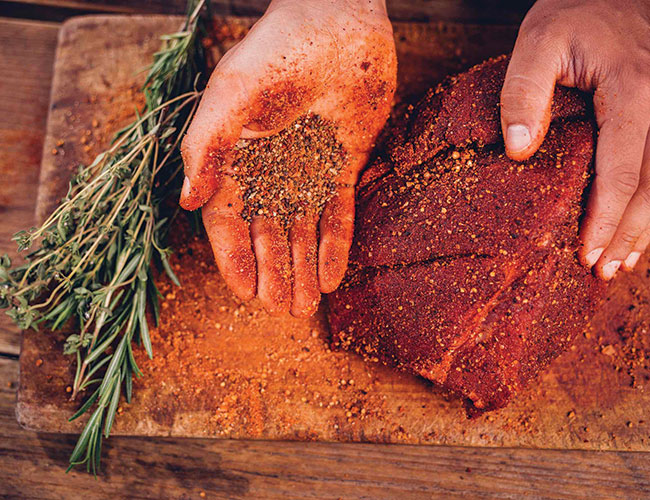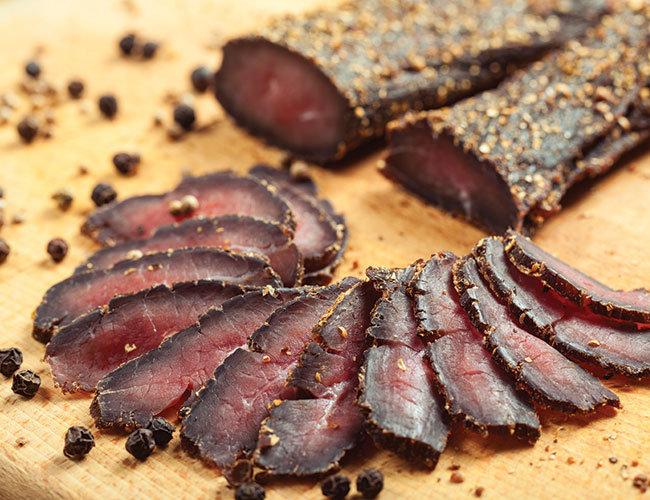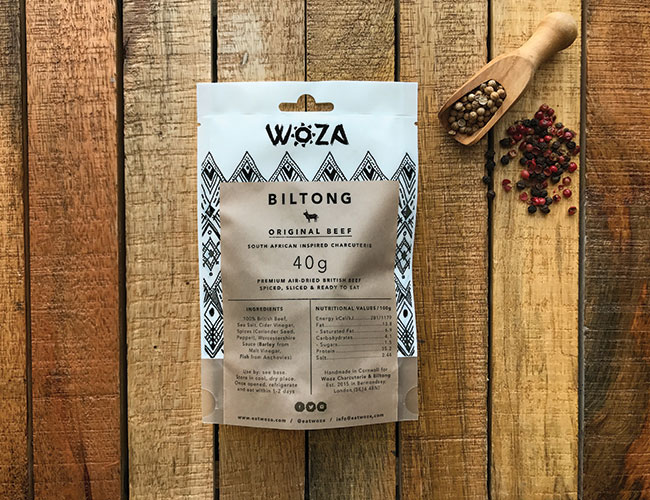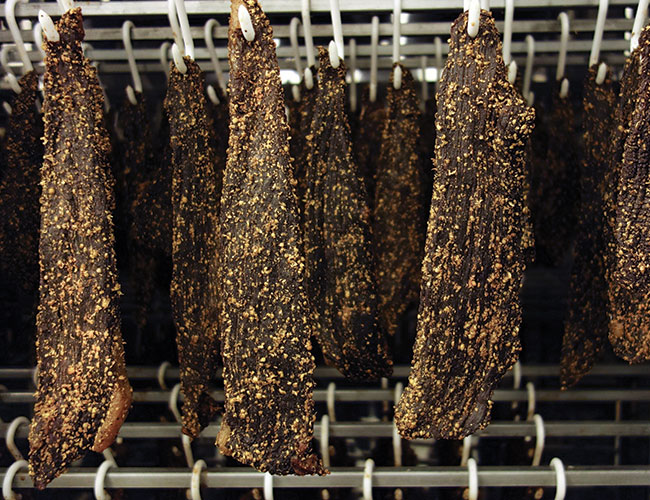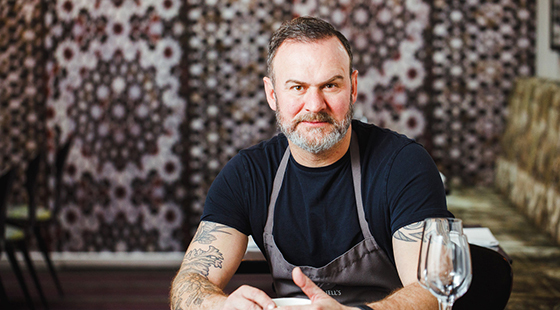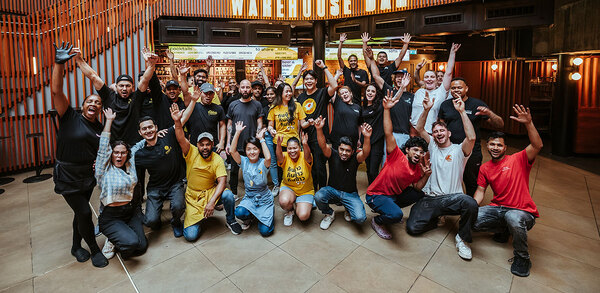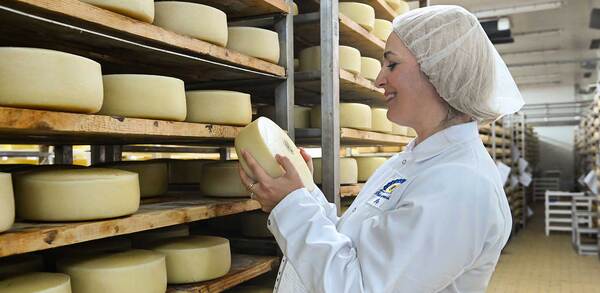The pies have it: the new breed of butchers
Among the new breed of butchers taking over Britain's high streets, quality and provenance are king. Will Hawkes reports
âI buy direct from the farmer â" a father and son team, Andrew and Richard Baugh,â he says. âI got to know them a few years ago. They rear the pigs outdoors; theyâre properly fed. Itâs a small company that produces fantastic pork.â
The public appetite for food traceability has been part of the meat and poultry landscape for more than a decade. A new breed of butchers is slowly colonising Britainâs high streets, bringing with them a passion not only for quality meat, but also for full transparency about its origins.

The desire for reliable provenance has spread into the world of pork pies, scotch eggs, sausage rolls and charcuterie â" a category you might loosely describe as gourmet meat snacks. Hartland Pies is one of the suppliers that has sprung up to service this demand â" and save British consumers from the perils of the grey service-station pasty or the questionable mini-market scotch egg.
King of Kingâs
Hartland has been making pies for over 30 years. He was one of the original suppliers at the revived Borough Market near London Bridge, taking over Mrs Kingâs Pies in 1998 and running it for 15 years.
He then left the company â" now run by his brother Paul â" to set up on his own, working with his sons Luke and Adam, continuing to make pies in the Melton Mowbray tradition from the companyâs base in Cotgrave, Nottinghamshire. Heâs enjoyed significant success since then, some of which must be down to his insistence on good-quality, local ingredients, such as his pork.
âI go up regularly to the Baughsâ farm to see them,â he says. âItâs just a good all-round farm, not too big; they produce about 50 pigs a week. Itâs fantastic pork, with a right cover of fat on it. Itâs not rare breed â" theyâre commercial Duroc White pigs. But itâs not just about that; itâs about how theyâre looked after, how theyâre fed, how theyâre taken to market. Theyâre well kept, and thatâs what I want.â
Itâs a philosophy that is driving a number of new gourmet meat snack businesses. They include Scotchtails, a London-based scotch egg producer that uses free-range pork and Burford Brown eggs, and Cooperâs Gourmet Foods in Shropshire, which makes free-range meat sausage rolls. Then thereâs Moons Green, which makes superb ham and charcuterie in Sussex, and Native Breeds, a curer and charcutier in Gloucestershire.
Itâs a revival that stems, according to Hartland, from what was lost in the 20th century. âWe lost so many producers,â laments the 58-year-old Hartland. âItâs like beer. The big companies took over, then real ale and craft beer came along. As with brewing, thereâs an art and a skill to pie-making. You need dedication. You can either get your ingredients from anywhere in the world, or you can build it off local businesses.
âYou try the supermarket [pork pies] and you think, itâs got to be better than this. But we donât want to get too much bigger. When you get bigger, you fall down the same way as the big boys. We want to stay a good size.â
Nonetheless, Hartland Pies has grown in its five years in business. Hartland and his sons now produce as many as 2,500 pies a week, a total which includes not only pork pies but hot pies too. Thereâs also a butcherâs shop. Hartland makes five different types of pork pies: authentic Melton Mowbray, Stilton, black pudding, chorizo, and smoky bacon.
âPeople tend to buy only one pie at a time, and only on certain days â" they have them at the weekends,â says Hartland. âI thought: how can I sell more pies? I started off with Stilton â" itâs perfect. We listened to what people say, and a lot of people wanted smoky bacon, so we did that. Then black pudding. You can go weird and wonderful, but you donât want to go too far. You want to tempt people.
âOnce people get to know you and your product, they stick with you â" as long as you donât change, and you keep making it the same way.â
The pies are now on sale as far away as south London, where a stall at Brockley Market has led to listings with butchers like Proud Sow in Brockley and The Butchery in Forest Hill. A company called The Charcuterie Board sells these and other British meat snacks into the capitalâs best butchers.
The rise of the likes of Moons Green demonstrates how foreign flavours â" from saucisson to chorizo â" are increasingly being produced in Britain. There are other foreign flavours, though, that are less popular; once youâve tasted them, there doesnât appear to be any good reason why.
Take biltong, a dried, cured beef snack that originates in South Africa. Perhaps itâs because we donât associate good-quality charcuterie with the Cape, or perhaps because there are too many mediocre versions on the market. Whatever the reason, British customers donât have a very high opinion of biltong.
Skye Saltzman, a South African who has lived in London for a decade, is keen to change that. He recently left his job at Barclays Bank to devote his time to his startup business, Woza, which makes high-quality biltong. âI settled on biltong because Iâm proud of being South African, and after running a few South-African themed supper clubs and pop-up clubs with a friend of mine I realised it was the biltong that was most popular,â he says.
âI started looking at gourmet meat snacks â" like the Serious Pig brand â" and I saw a massive increase in demand for that kind of thing. South African biltong wasnât being done well, so I wanted to remedy that.â
Saltzmanâs product is one of a number of similar products with a strong link to the world of beer that have emerged recently. For example, Cleaver & Kegâs âmeaty morsels for the modern drinkerâ are small bags of sliced charcuterie that come with beer recommendations and, of course, Serious Pig. Woza is regularly available at Beavertown Breweryâs taproom, with Saltzman himself making quarterly visits to slice fresh biltong.
Wozaâs range (which currently takes in original beef, Cape cinnamon and wild venison) is soon to expand, with the addition of a chilli-flavoured biltong. Saltzman, 34, is also planning to launch another South African delicacy, droëwors, a dried beef sausage.
âI want people to think of these products as the accompaniment to a good beer, a good wine, a good whisky,â he says. âIâm trying to change peopleâs minds.â
Knowledge is king
Elsewhere, traceability is equally crucial. Companies like Udale, which sources much of its meat in Cumbria and supplies to top restaurants, are leading the way. Even the origins of ingredients used alongside meat, such as spices, are now considered significant, as Christine Peers of EHL Ingredients, an importer, blender and packer of food ingredients from around the world, explains.
âAuthenticity and provenance are of high importance for EHL,â she says. âWe always go the extra mile to ensure that our ingredients are sourced from quality suppliers with full traceability to the country of origin, assuring manufacturers that the product they are getting is 100% authentic.â Products include chakalaka seasoning from South Africa and creole seasoning from Americaâs Deep South.
And, according to butcher Lee Frost of WH Frost in Manchester, butchers that can demonstrate quality and provenance are very attractive as suppliers to good restaurants. WH Frost sources its meat from a farm five miles from its shop in Chorlton. âItâs customers that drive demand, but theyâre constantly told by increasingly knowledgeable celebrity chefs to seek out a good butcher,â he says. âThis filters down to the menu, where our chef customers name-check us, as well as asking for advice on describing dishes.â
The desire for local meat from good butchers is obvious at Hartlandâs shop in Stapleford, Nottingham. âButchery is an art and people like to see it,â he says. âWe butcher out in front of people. They like to see the skill of the knife work and what youâre doing. Thereâs nothing better than carrying a pig through the shop â" that stops everybody, that does! People go âooh, look at that!ââ
Suppliers
Cleaver and Keg cleaverandkeg.co.uk
Cooperâs Gourmet Foods coopersgf.com
EHL Ingredients ehl-ingredients.co.uk
Hartland Pies hartlandpies.co.uk
Moons Green moonsgreen.co.uk
Mrs Kingâs Pies mrskingsporkpies.co.uk
Native Breed Curers nativebreeds.co.uk
Proud Sow proudsow.co.uk
Q Guild of Butchers qguild.co.uk
Scotchtails scotchtails.com
The Butchery thebutcheryltd.com
The Charcuterie Board thecharcuterieboard.com
Udale udale.com
Woza eatwoza.com


